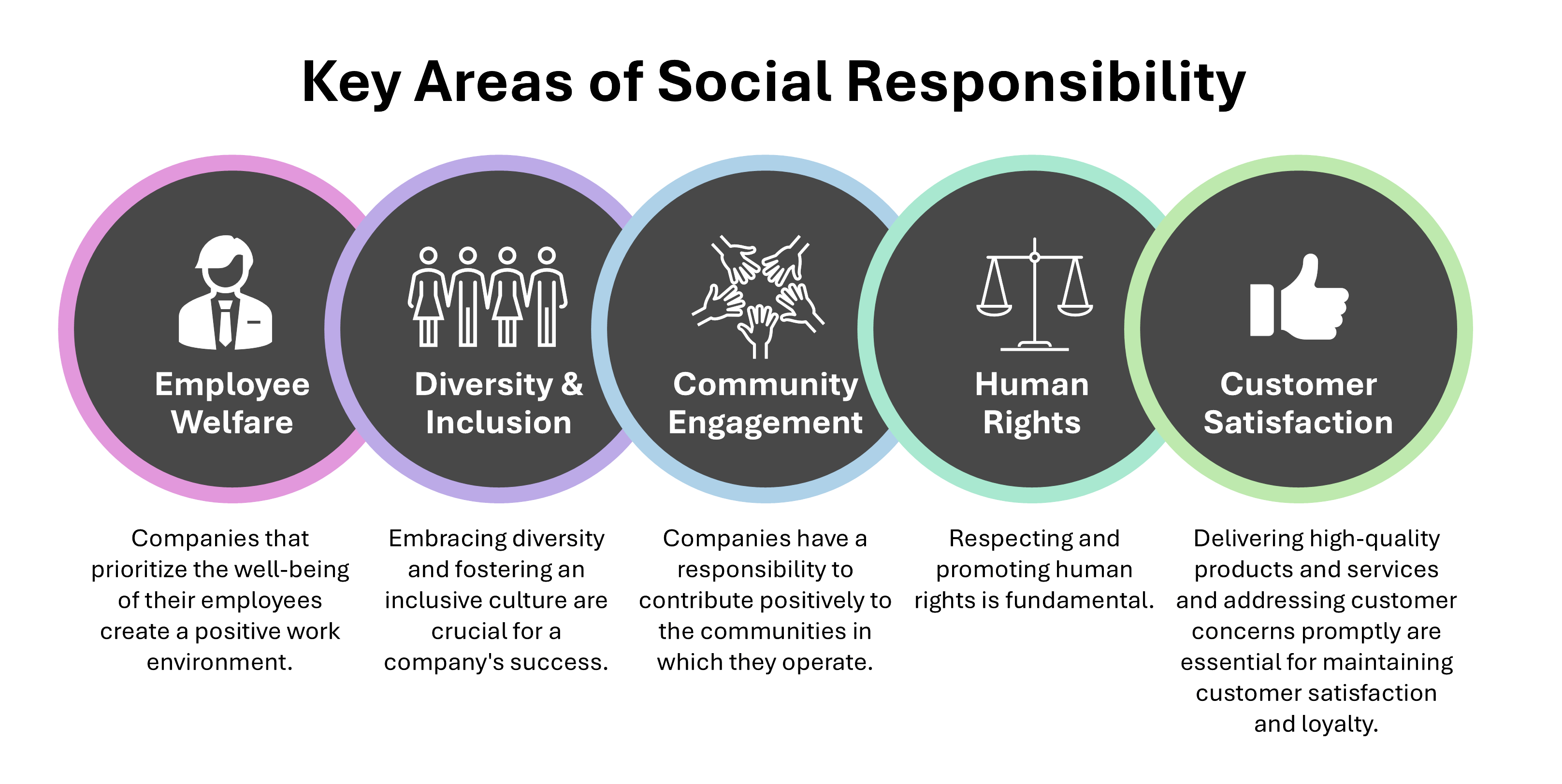How Envision RISE Can Help Assess Your Organizations ESG Goals and Outline a Plan for Your Desired State
How Envision RISE Can Help Assess Your Organizations ESG Goals and Outline a Plan for Your Desired State
By Staci Hegarty, M.Ed.
Creating an effective ESG roadmap tailored to your organization’s future goals and objectives is a strategic journey, not a prescriptive checklist. Envision RISE can be a valuable partner in this process, offering expertise and tools to assess your current state, identify gaps, and develop a comprehensive plan to achieve your desired state.
Step-by-Step Approach with Envision RISE
- Assessment of Current State: Envision RISE collaborates with your organization to conduct a thorough assessment of your current ESG practices. This involves evaluating your environmental impact, social responsibilities, and governance structures to understand your starting point.
- Gap Analysis: Together with Envision RISE, you’ll conduct a gap analysis aligned with your goals and objectives. This analysis helps identify areas where your organization needs to improve to meet your ESG targets.
- Defining Action Plans: Envision RISE works with you to define both near-term and long-term action plans. These plans focus on quick wins and strategic initiatives that will drive your ESG goals forward.
- Socialization and Visibility Plan: Envision RISE outlines an internal and external socialization and visibility plan. This ensures that your ESG efforts are communicated effectively to all stakeholders, building trust and demonstrating your commitment to responsible business practices.
- Continuous Monitoring and Adaptation: Envision RISE helps establish key performance indicators (KPIs) to monitor your progress and adapt your strategies as needed. This dynamic approach ensures that your ESG roadmap remains relevant and effective over time.

Benefits of Partnering with Envision RISE
- Expertise and Experience: Envision RISE brings a wealth of knowledge and experience in ESG assessment and planning, helping you navigate the complexities of ESG integration.
- Tailored Solutions: Their services are customized to fit the unique needs of your organization, ensuring that your ESG roadmap is aligned with your specific goals and objectives.
- Comprehensive Support: From initial assessment to ongoing monitoring, Envision RISE provides comprehensive support throughout your ESG journey.
- Enhanced Credibility: Partnering with a reputable ESG-focused organization like Envision RISE enhances your credibility with stakeholders, investors, and regulatory bodies.
Conclusion
Creating an ESG roadmap focused on your future organizational goals and objectives is a strategic journey that requires expertise, collaboration, and a tailored approach. Envision RISE offers the tools and support needed to assess your current state, identify gaps, and develop a comprehensive plan to achieve your desired state. By partnering with Envision RISE, you can build a resilient and sustainable business that aligns with your values and drives long-term success.
Visit our website at https://envisionrise.com.
The Vital Role of Governance in ESG (4-Part Series)
The Vital Role of Governance in ESG
Part 4 of a 4-Part Series
By Staci Hegarty, M.Ed.
In recent years, Environmental, Social, and Governance (ESG) criteria have gained significant traction in shaping how companies are evaluated and held accountable. While the environmental (E) and social (S) aspects often receive the most attention, the governance (G) component is equally critical in driving sustainable and ethical business practices. Here’s why governance should never be overlooked in the ESG equation.
What is Governance in ESG?
Governance refers to the system of rules, practices, and processes by which a company is directed and controlled. It encompasses everything from executive leadership and board composition to company policies, internal controls, and shareholder rights. Good governance ensures that a company is managed in the best interests of all stakeholders, including shareholders, employees, customers, and the broader community.
Four Pillars of Good Governance
- Transparency: Companies with strong governance are transparent in their operations, providing clear, accurate, and timely information to stakeholders. This includes financial performance, business practices, and risks. Transparency builds trust and enables stakeholders to make informed decisions.
- Accountability: Good governance means that leaders are held accountable for their actions. This involves clear delineation of responsibilities, regular performance reviews, and mechanisms to address misconduct. Accountability ensures that decisions are made in the best interest of the company and its stakeholders.
- Fairness: Equitable treatment of all stakeholders is a cornerstone of good governance. This means fair practices in hiring, promotions, and dealings with suppliers and customers. Fairness helps build a positive corporate culture and strengthens the company’s reputation.
- Responsibility: Companies with robust governance frameworks take responsibility for their impact on society and the environment. This includes ethical business practices, compliance with laws and regulations, and proactive risk management.

Why Governance Matters
- Risk Management: Effective governance helps identify, mitigate, and manage risks before they become problematic. By having robust policies and procedures in place, companies can avoid scandals, legal issues, and financial losses.
- Investor Confidence: Investors are increasingly looking at governance practices as part of their investment decisions. Companies that demonstrate strong governance are more likely to attract and retain investors, as they are perceived as less risky and more reliable.
- Long-term Success: Good governance fosters a culture of integrity and ethical behavior, which is essential for long-term success. It promotes sustainable business practices that not only benefit the company but also contribute to the well-being of society and the environment.
- Regulatory Compliance: As regulations become more stringent, companies with strong governance are better positioned to comply with legal requirements. This reduces the risk of fines, penalties, and reputational damage.
- Corporate Reputation: Companies known for their good governance are more likely to be trusted by customers, employees, and the public. A strong reputation can be a significant competitive advantage, attracting talent, fostering customer loyalty, and enhancing overall business performance.
Conclusion
While environmental and social criteria are vital for assessing a company’s ESG performance, governance is the glue that holds everything together. It’s the framework that ensures ethical behavior, accountability, and transparency. By prioritizing good governance, companies not only mitigate risks but also position themselves for sustainable growth and success in a rapidly evolving business landscape.
Governance isn’t just a box to tick in the ESG checklist; it’s the foundation upon which a resilient and responsible business is built. Let’s give governance the attention it deserves in our pursuit of a sustainable and ethical future.
Visit our website at https://envisionrise.com.
The Vital Role of Social Responsibility in ESG (4-Part Series)
The Vital Role of Social Responsibility in ESG
Part 3 of a 4-Part Series
By Staci Hegarty, M.Ed.
Environmental, Social, and Governance (ESG) criteria have become a cornerstone in evaluating a company’s ethical impact and sustainability. While the environmental and governance aspects are essential, the social (S) component is equally critical in driving a company’s long-term success and impact. Here’s why social responsibility is indispensable in the ESG framework.
Understanding the ‘S’ in ESG
The social component of ESG refers to a company’s relationships with its stakeholders, including employees, customers, suppliers, and the communities in which it operates. It encompasses various factors such as labor practices, diversity and inclusion, community engagement, human rights, and customer satisfaction. Essentially, it evaluates how a company manages its social impact and ensures its operations benefit society.
Five Key Areas of Social Responsibility
- Employee Welfare: Companies that prioritize the well-being of their employees create a positive work environment. This includes offering fair wages, ensuring safe working conditions, providing opportunities for career growth, and promoting work-life balance. Happy and healthy employees are more productive, loyal, and innovative.
- Diversity and Inclusion: Embracing diversity and fostering an inclusive culture are crucial for a company’s success. Diverse teams bring varied perspectives and ideas, driving creativity and innovation. Companies that champion diversity are better equipped to understand and serve their diverse customer base, enhancing their market reach and reputation.
- Community Engagement: Companies have a responsibility to contribute positively to the communities in which they operate. This can involve supporting local businesses, engaging in philanthropy, and participating in community development projects. Strong community ties can enhance a company’s reputation and create a loyal customer base.
- Human Rights: Respecting and promoting human rights is fundamental. This includes ensuring that business practices do not contribute to exploitation, child labor, or unfair labor conditions. Companies committed to human rights foster ethical supply chains and build trust with consumers and investors.
- Customer Satisfaction: Delivering high-quality products and services and addressing customer concerns promptly are essential for maintaining customer satisfaction and loyalty. Companies that prioritize customer needs and provide excellent service are more likely to succeed in competitive markets.

Why Social Responsibility Matters
- Enhanced Reputation: Companies known for their social responsibility are more likely to be trusted and respected by customers, employees, and the broader public. A positive reputation can lead to increased customer loyalty, better employee retention, and enhanced business opportunities.
- Risk Mitigation: By addressing social issues proactively, companies can mitigate risks such as labor strikes, boycotts, and legal challenges. Socially responsible practices help prevent scandals and reputational damage.
- Investor Attraction: Investors are increasingly considering social factors in their investment decisions. Companies with strong social practices are more likely to attract responsible investors looking to support sustainable and ethical businesses.
- Employee Engagement and Retention: Employees want to work for companies that align with their values. Companies that prioritize social responsibility tend to have higher employee engagement and retention rates. A motivated and committed workforce is a significant asset.
- Sustainable Growth: Social responsibility contributes to long-term, sustainable growth. Companies that invest in their employees, communities, and ethical practices build a solid foundation for continued success and resilience in a rapidly changing world.
- Legal and Regulatory Compliance: Governments and regulatory bodies are increasingly focusing on social issues. Companies that adhere to social responsibility standards are better positioned to comply with laws and regulations, avoiding fines and legal issues.

Conclusion
The social component of ESG is not just a box to tick; it is a crucial aspect of a company’s overall impact and success. By prioritizing social responsibility, companies can create a positive impact on society while reaping significant business benefits. Strong social practices enhance reputation, attract investors, engage employees, and contribute to sustainable growth.
Incorporating social responsibility into business strategies is essential for building a resilient and ethical company that thrives in today’s interconnected and socially-conscious world. Let’s give the ‘S’ in ESG the attention it deserves, ensuring that businesses contribute to a better, fairer, and more holistic society.
Visit our website at https://envisionrise.com.


